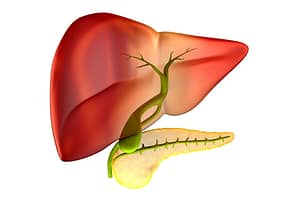High blood pressure, or hypertension, is a serious condition affecting millions of Americans yearly. Left unchecked and untreated, it can lead to severe health problems such as heart attack, stroke, kidney failure, vision loss, and more. Thankfully, medications can help regulate high blood pressure levels and reduce the risks of this potentially dangerous medical problem. This post will explore why taking medication for high blood pressure is so important to maintain good health.
Exploring High Blood Pressure and Its Potential Health Risks
High blood pressure, sometimes referred to as hypertension, is a condition in which the force of the blood against artery walls is consistently too high. The most common cause for this condition is an imbalance between salt and water in the body. Still, certain lifestyle factors or genetic predispositions can also contribute to it.
Uncontrolled high blood pressure can lead to serious health complications such as heart attack, stroke, kidney failure, and vision loss. It can even be fatal if left unchecked and untreated. To better control high blood pressure levels and reduce the risks associated with this potentially dangerous medical problem, medication is often prescribed in addition to lifestyle changes such as following a healthy diet and regular exercise.
Maximizing Medication Effectiveness
- Understand your medications – read the labels and ask your doctor or pharmacist about any questions you may have.
- Take medications as your doctor prescribes, including dosage amounts and frequency of use.
- Monitor blood pressure levels regularly to ensure that the medication is working correctly.
- Keep all medications in their original containers with safety caps intact.
- Be aware of potential side effects from taking certain medications and contact a healthcare professional if they occur.
- Never share prescription drugs with another person.
- Look for discounts, such as lisinopril discounts, when purchasing medication to help save money on costs.
Lifestyle Changes for Lowering and Maintaining Optimal Blood Pressure Levels
Making lifestyle changes is an important part of managing high blood pressure. Along with taking medications as prescribed, simple lifestyle modifications can help to reduce and maintain healthy blood pressure levels.
Exercising regularly is one of the most effective ways to control high blood pressure levels. Exercise helps improve cardiovascular fitness and circulation, keeping your heart and vessels healthier. Aim to get at least 30 minutes of moderate physical activity daily or at least 150 minutes weekly.
Incorporating a healthy diet into regular eating habits is also important for managing hypertension. Eating various fruits, vegetables, whole grains, and lean proteins can ensure the body gets the necessary nutrients to keep it functioning optimally. Reducing sodium intake by limiting processed foods and avoiding adding extra salt to meals can also help lower high blood pressure levels.
Limiting alcohol consumption is another way to reduce the risks associated with hypertension. Alcohol raises blood pressure levels immediately after drinking and over time, so it’s best to have no more than one drink per day for women or two drinks per day for men. Finally, reducing stress levels can be beneficial in controlling high blood pressure. Activities that provide relaxation, such as yoga, meditation, deep breathing techniques, or guided imagery, can be very helpful in calming down the mind and body naturally.
Conclusion
Medication for this hypertension can help lower and maintain healthy blood pressure levels, reducing the risk of related health problems. Medications used to treat hypertension work by helping relax narrowed arteries or calming overactive nerves that control your heartbeat and blood vessels, thus decreasing the strain on your cardiovascular system. It’s important to take medications as prescribed, including dosage amounts and frequency of use, and to regularly monitor blood pressure levels to ensure the medication works correctly.







